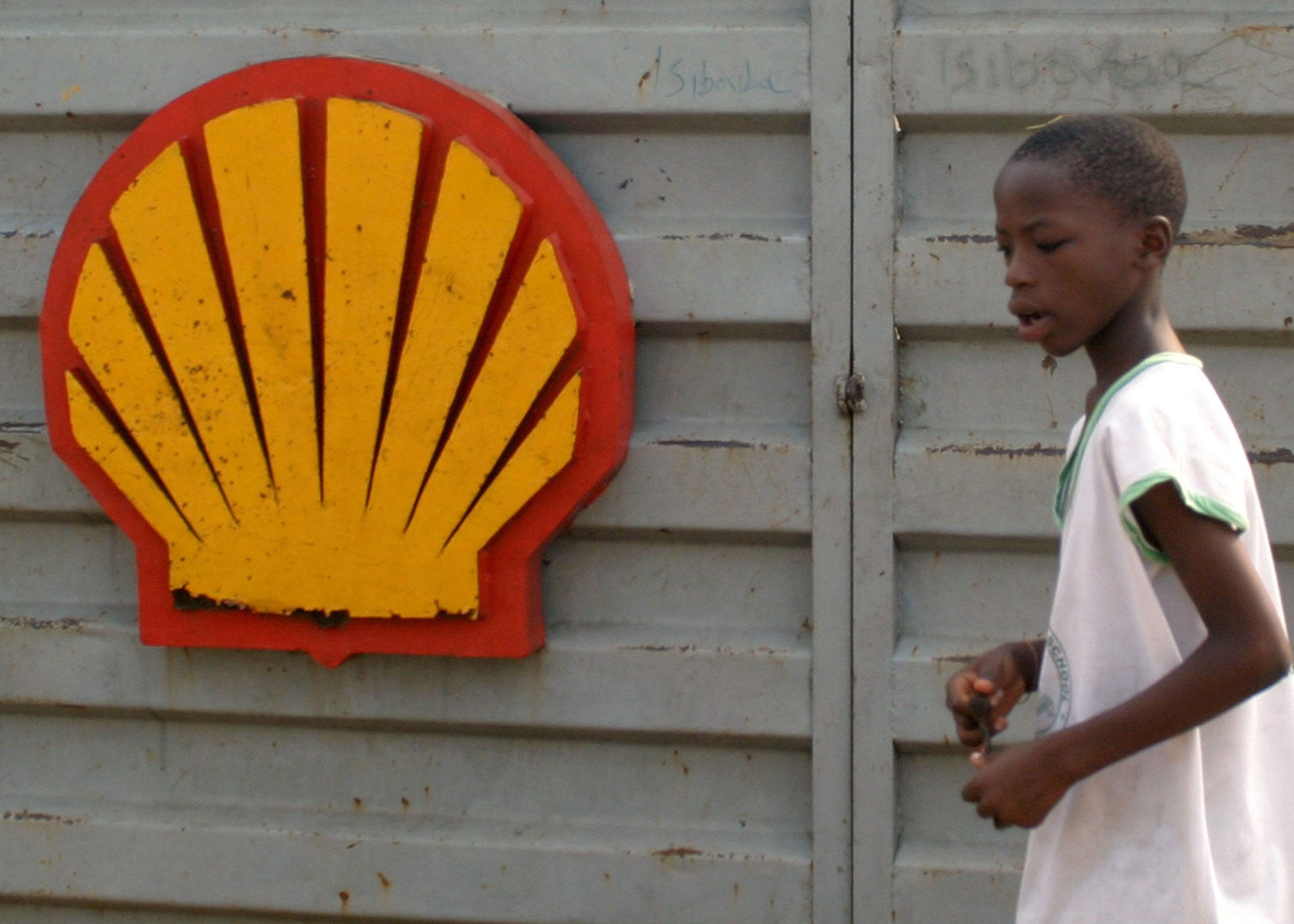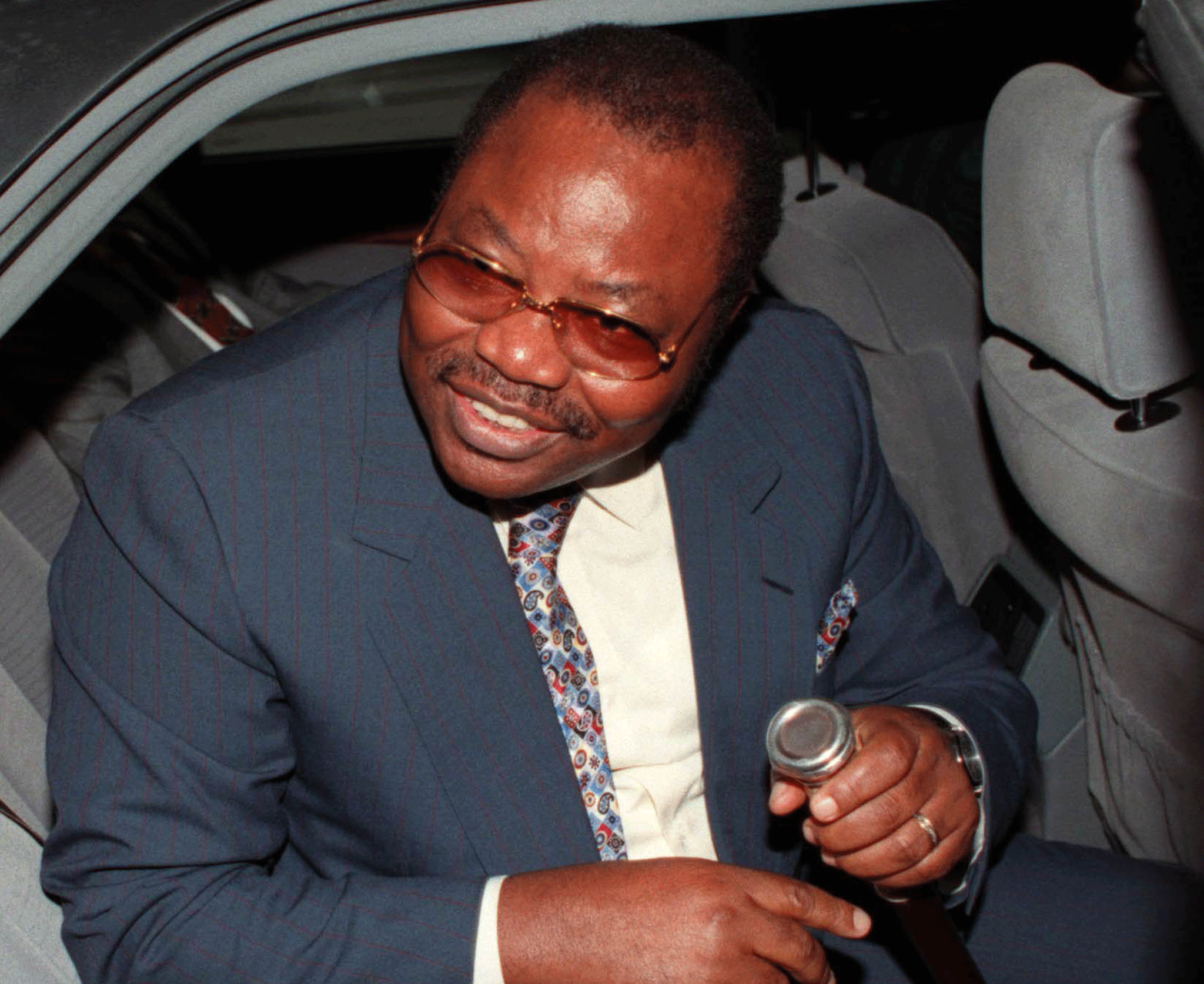Shell and Eni face one of the biggest corruption cases in corporate history over $1.3bn Nigerian oil field
Time running out for prosecutors to obtain potentially crucial documents seized in Geneva apartment raid

Your support helps us to tell the story
From reproductive rights to climate change to Big Tech, The Independent is on the ground when the story is developing. Whether it's investigating the financials of Elon Musk's pro-Trump PAC or producing our latest documentary, 'The A Word', which shines a light on the American women fighting for reproductive rights, we know how important it is to parse out the facts from the messaging.
At such a critical moment in US history, we need reporters on the ground. Your donation allows us to keep sending journalists to speak to both sides of the story.
The Independent is trusted by Americans across the entire political spectrum. And unlike many other quality news outlets, we choose not to lock Americans out of our reporting and analysis with paywalls. We believe quality journalism should be available to everyone, paid for by those who can afford it.
Your support makes all the difference.Giant oil companies, offshore accounts, ex-MI6 agents, champagne lunches, a former Nigerian president and allegations of hundreds of millions of dollars paid as bribes – the corruption case against Shell and Italy’s Eni filed by prosecutors in Milan over a shady $1.3bn deal for a vast African oil field could have been lifted from the pages of an espionage thriller.
The latest developments thicken the plot further with a cache of documents seized in a raid on a Swiss financier’s apartment that could be crucial to the case, leaving prosecutors in a race against time to get them to Milan as trial hearings get underway this week.
The Geneva raid uncovered a briefcase belonging to Emeka Obi, a middleman who received millions of dollars from the deal and is in the dock along with several former Shell employees and current and former Eni executives.
Inside the briefcase, Swiss prosecutors found a laptop, two Nigerian passports, five sim cards and a hard drive containing 41,000 documents that prosecutors believe could be crucial to the trial playing out on the other side of the Alps.
The stakes are high. Italian prosecutors allege that, of the total $1.3bn fee paid by Shell and Eni for the oil field, $1.1bn went not into the coffers of the Nigerian state but the accounts of former oil minister Dan Etete who then distributed hundreds of millions to well-connected individuals, including former president Goodluck Jonathan.
The amount distributed as bribes is more than the entire Nigerian healthcare budget for 2018, in a country where 87 million people live in extreme poverty – more than any other country on earth.
The Geneva apartment belonged to Olivier Couriol, a former Credit Suisse banker who has been named in two other international corruption cases.
He is under investigation for his role in a separate deal that involved Airbus allegedly paying bribes to sell defence equipment to the Malian government and has been named in proceedings that saw former Credit Suisse money manager Patrice Lescaudron jailed in February for fraud that cost clients £110m.

Couriol has said that Obi was merely a friend who left the bag at his flat by mistake while on holiday. Geneva prosecutor Claudio Mascotto said he believes it was stashed there to keep it hidden from authorities.
Couriol has not been charged in relation to the Shell/Eni deal. His lawyer did not respond to requests for comment.
In June, a court in Geneva said some of the documents found in Couriol’s possession could be unsealed, paving the way for them to be sent to Milan but Obi has launched another appeal, meaning a Swiss federal court must now decide on the matter.
The court did not confirm when a decision on the appeal would be handed down. Meanwhile, the clock is ticking as Obi is set to face a “fast-track” trial in Milan that could conclude within weeks.
In the wider trial, defendants include Eni’s current chief executive Claudio Descalzi and his predecessor Paolo Scaroni as well as former Shell board member Malcolm Brinded and Peter Robinson, a former Shell vice president for sub-Saharan Africa.
The significance of the briefcase is underlined by the actions of Geneva prosecutor Claudio Mascotto. After inspecting its contents, he swiftly opened his own investigation into money laundering and bribing a foreign public official. He then contacted his counterpart in Milan to tell him he thought it may be important. Authorities believe the documents may also contain details of other questionable deals for Nigeria’s oil fields.

Shell and Eni could potentially be forced to pay huge damages in the case after judges ruled that Nigeria had the status of victim.
Barnaby Pace, an anti-corruption campaigner at Global Witness, said the trial should signal a turning point for the oil industry
“Some of the most senior executives of two of the biggest companies in the world could face prison sentences for a deal struck under their watch,” he said.
Shell’s day in court comes after years of denials in which it said it had not knowingly transacted with convicted money launderer and former Nigerian oil minister Dan Etete when it purchased the lucrative OPL 245 field.
In the final days of the regime of Sani Abacha in 1998, Mr Etete awarded the oil field – which held around a quarter of Nigeria’s known reserves – to a company called Malabu Oil and Gas, which it later emerged he controlled.
When rights to the field were finally sold in 2011, all of the payments went through the Nigerian government but $1.1bn was then paid into Malabu’s accounts, much of it via banks in London.
Shell says it paid money to the Nigerian state and denies wrongdoing, as does Eni.
After years of investigations by anti-corruption groups Global Witness, Re:Common and Finance Uncovered, Shell admitted last year that it did know Etete was behind the deal and that he had been convicted on unrelated money laundering charges in 2007.
Emails revealed that a former MI6 agent hired by Shell, who is also a defendant in the case, had been in contact with Mr Etete from at least 2009, two years before the deal was sealed. The agent wrote of champagne lunches with Etete in Paris at which the deal was discussed.
In one internal email to a senior Shell executive, he wrote: “Etete can smell the money. If, at nearly 70 years old, he does turn his nose up at $1.2bn he is completely certifiable and should then probably just hold out until nature takes his course with him.”
Further correspondence from June 2010 states that Etete claimed to have a letter from Goodluck Jonathan, then Nigerian president, that was “clearly an attempt to deliver significant revenues to GLJ as part of any transaction”.
Hundreds of millions of pounds of that money passed through JP Morgan in London, which is being sued by the Federal Government of Nigeria for “gross negligence”.
In court filings, JP Morgan said the UK’s top anti-money laundering authority gave the green light for the payments after the bank raised a series of suspicious activity reports.
Emeka Obi’s lawyer did not respond to requests for comment for this article.
Join our commenting forum
Join thought-provoking conversations, follow other Independent readers and see their replies
0Comments